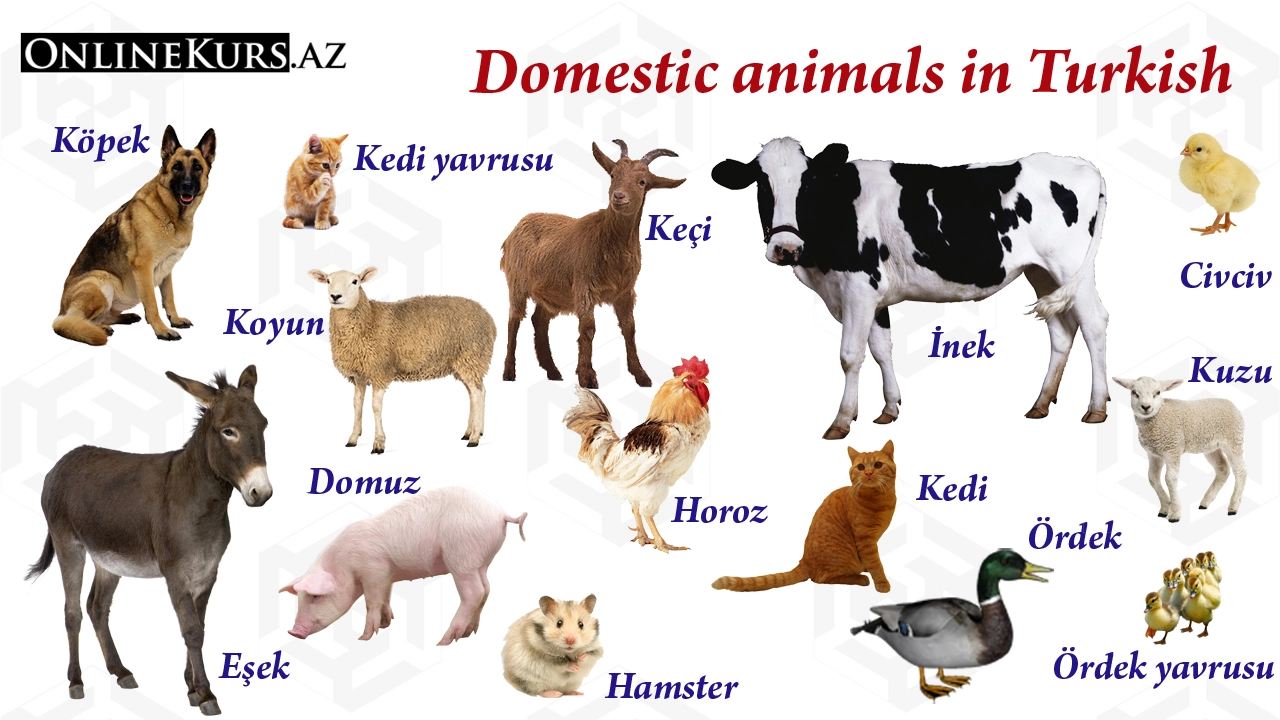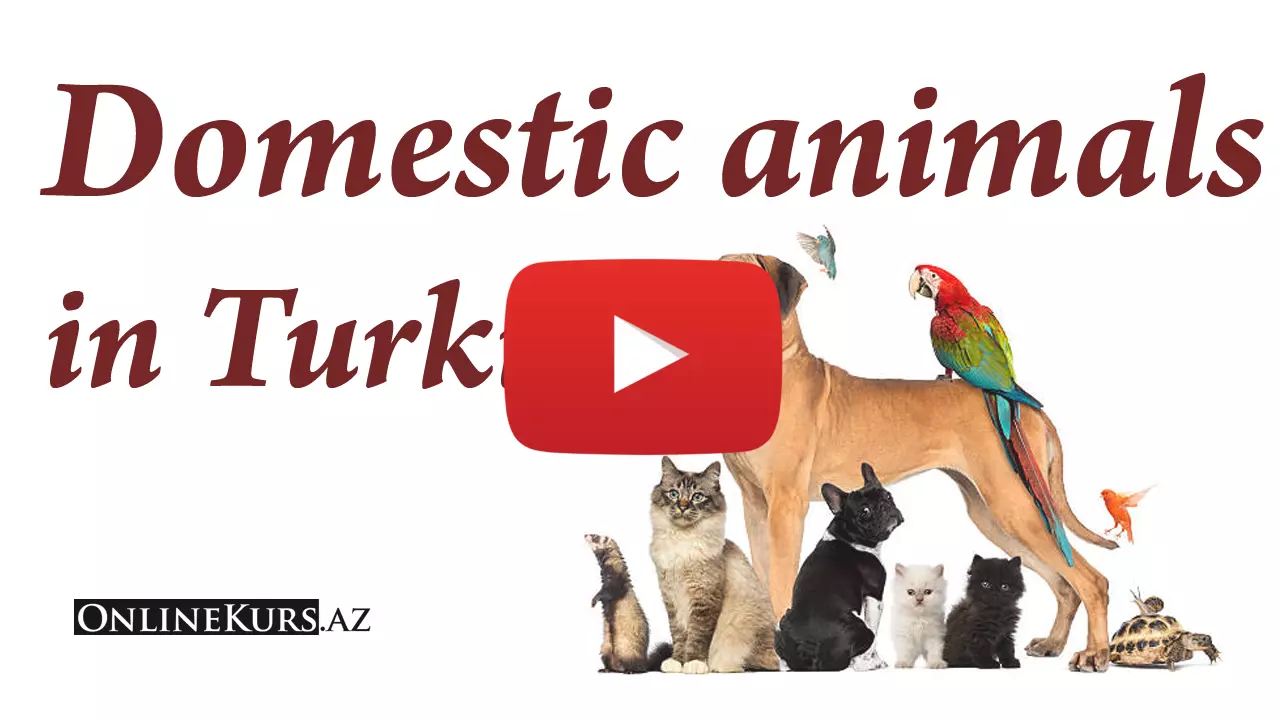Domestic animals in Turkish
In this lesson we will learn new words in Turkish on the topic: Names of Domestic animals in Turkish.
Words on domestic animals in Turkish
Without knowing the names of domestic animals in Turkish, you may risk losing a significant amount of information when talking to a Turkish-speaking person, or you may not even understand what your interlocutor is talking about in general. Domestic animals in Turkish, as well as the topic of weather, is one of the topics that can be addressed when talking to your interlocutor you have just met and do not have a common topic to talk about. Of course, if your interlocutor also has a pet, it means that you will easily handle the conversation.
The names of domestic animals in Turkish are eagerly learned by both children and adults. It is easier for children to remember the names of domestic animals in Turkish than in abstract things. One of the first questions that children ask in Turkish language classes is "What are the names of domestic animals in Turkish?"
In general, it is important to know the names of domestic animals in Turkish. Because, in everyday life, you will often come across words about domestic animals in Turkish. Thus, the British and Americans, like the Turks, like to compare the animals with any people or to compare them with certain traits and temperaments, and also use them in various proverbs and sayings.
The topic of domestic animals in Turkish for children will be more interesting if you explain how domestic animals make sounds. For example, in English, a cat "meows", that is, makes a meowing sound. In Turkish, this verb corresponds to the word "miyavlamak". In turkish the clucking of chickens is expressed by the verb "gıdaklamak". The Turkish dog's bark is heard as [hav-hav], the sheep's bleat is heard as - "bee-bee". Turkish children hear the neighing of a horse as "iha-iha", the sound of a pig as "oink-oink", and the sound of birds as "civ-civ".

Turkish idioms and proverbs about domestic animals.
"Eşeğe altın semer giydirmişler eşek yine eşek." - They dressed the donkey with a golden saddle, but the donkey is still a donkey.
"Kedi uzanamadığı ete mundar der." - The cat calls the meat she can't reach dirty. (It is a proverb used when a person denigrates something that he normally wants but cannot reach. )
"Çok havlayan köpek ısırmaz." - Barking dogs seldom bite.
"Aç köpek fırın deler." - The hungry dog pierces the oven. ( A hungry person, in order to fill her stomach, collides with obstacles that are thought to be beyond her power and gets what she wants. )
"Atlar tepişir, arada eşekler ezilir." - Horses scramble, donkeys are trampled in between. ( The meaning of the proverb is that strong people fight each other. From this, the weak among them suffer. )
"Koyun can derdinde kasap et derdinde" - Sheep is in trouble of life, butcher is in trouble of meat. ( This proverb defines people who have a conflict of interest in the society. According to the proverb, while some people deal with big issues, some only think about their interests. )
"İt ürür kervan yürür" - The dog barks, but the caravan goes on. ( It is said to mean that those who walk on the right path cannot prevent the attack of vile people. )
"İnsanın insanlardan kaçışıdır hayvan sevgisi." - The love of animals is the escape of people from people.
Spelling and pronunciation of the names of domestic animals in Turkish.
|
|
Domestic animals |
|
|
Dog |
|
|
Puppy |
|
|
Cat |
|
|
Kitten |
|
|
Sheep |
|
|
Ram |
|
|
Lamb |
|
|
Goat |
|
|
Kid |
|
|
Cattle |
|
|
Cow |
|
|
Bull |
|
|
Buffalo |
|
|
Calf |
|
|
Horse |
|
|
Foal |
|
|
Donkey |
|
|
Camel |
|
|
Pig |
|
|
Piglet |
|
|
Hen |
|
|
Rooster |
|
|
Chick |
|
|
Duck |
|
|
Duckling |
|
|
Goose |
|
|
Turkey |
|
|
Rabbit |
|
|
Hamster |
|
|
Bee |
We believe that the education should be free and available to everybody. This is why some time ago, we made a decision to continue developing as a completely free network. But we need the support of our readers to continue creating new content, keep the development going and pay related expenses. If you like what we do and find it helpful, consider supporting us by making a donation.
